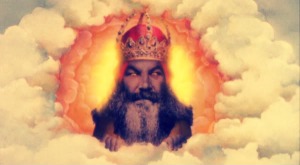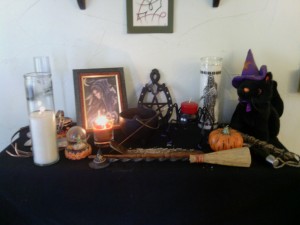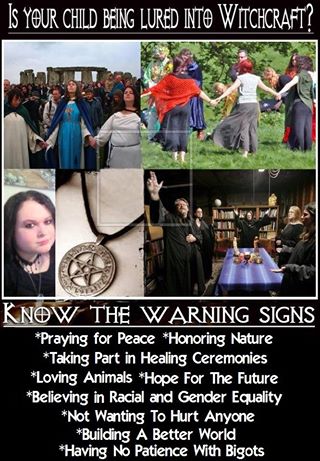OR
My Spirituality and Welcome To It
After I wrote my first post on my particular, peculiar belief system (My Path to the Craft, published, appropriately enough, on Samhain), certain people noticed a glaring omission in the content. I. E., while I gave a rather detailed account of HOW I came to believe what I do, I never said what I actually believe.
Damn. Not going to let me get away with that, are you?
Okay, fine. What I believe. Um.
Can’t you all just read my books for a general idea?
While I acquired a number of unusual notions about religion and spirituality early on and from various sources–for example, I first started thinking about reincarnation after reading Jonathan Livingston Seagull, because how does that NOT make sense?–the main thing that drew me to identify as Pagan and a Witch was the idea of God as a Woman. Being a budding feminist in my early twenties, and having come from a family that practiced unconscious sexism as a matter of course, internalizing that many cultures had throughout history (and a few in the present day) given women’s experience equal weight in matters of the divine was a huge revelation for me. I mean, I’d always KNOWN it. As a senior in high school, I wrote an analysis of Virgina Woolf’s To the Lighthouse as a conflict between masculine and feminine deities. I had no idea what I was talking about, but I somehow managed to pull it off. It wasn’t until later, though, that the idea became any more than an abstract concept. It made sense to me on a deep level. I’d never really accepted the standard Judeo-Christian construct of God as some old, bearded, white guy on a golden throne in the sky. I didn’t understand how that was supposed to work. I REALLY didn’t understand why we were supposed to worship this being or why he would care. Once I asked my dad, “If God is all-knowing and all-powerful, why do we have to prove we’re faithful by going to church? Doesn’t he already know if we’re good or not?” (No, I never really cared about standard questions of why an all-powerful, benevolent God would allow evil. Gods are gods; who can tell why they do what they do? I was always way more concerned with the relationship.)

Well, anyway. I really loved the idea of Goddess. God being a woman and concerned with women’s things. What would a male god know about childbirth? Pregnancy? Fear of being alone? Menstruation? Boobs? Finding an appropriate dress for every occasion? All these things that women are brought up to believe have less validity than “manly” concerns suddenly become sacred when a goddess is concerned. When the female is just as sacred as the male, WOMEN STOP BEING DISPOSABLE. This was something I could get behind.
I also could get behind the idea of immanent deity. If this is new to you, immanence is the quality of being present. An immanent deity is one present and involve in the world rather than removed from it (“transcendent,” in other words). Most of the religions people are familiar with worship a transcendent god and place a high value on transcendence. What this means is, their god is removed from the world and worldly concerns, and a high value is placed on non-earthly things like the afterlife, abstract thought, and unattainable goals. When you have an immanent deity, your point of view changes. Your gods are dirty and messy and concerned with practical things. Since your gods are present in the earth, the earth becomes sacred. You no longer have the ability to think, “Nothing here matters because getting to Heaven is the true goal.” Your actions on the earth and the way you treat the earth gain importance.
DISCLAIMER: I’m not saying transcendence is necessarily wrong. The ability to transcend trouble and pain is a good skill to learn. And many non-Abramic religions practice a combination of transcendence and immanence. (An Abramic religion is one of those based on early Hebrew texts, like Judaism, Christianity, and, as I understand it, Islam, but feel free to correct me if I’m wrong about this last one.)
Okay, so I liked having goddesses and I liked the idea of immanent deity. But I didn’t want to shut out male gods either. It seemed to me both were necessary. This led me straight away to Wicca, which is the Pagan religion most people are probably familiar with. Wicca was basically founded in the 50s by a man named Gerald Gardner, who claimed at the time that he was revealing a religion that had been secretly practiced in the British Isles since prehistoric times. These claims have since been debunked; Gardner mainly took his ideas from the spiritualist movement of the late nineteenth and early twentieth century, combined them with popular notions of what Witchcraft should look like that reached back to Medieval times, and gave them street cred by attaching his ideas to the notion of a long-standing tradition. (Short story. If you want a longer, scholarly take, look here.)
DISCLAIMER #2: I have no particular problem with Gerald Gardner or his system. Nor do I blame him (or anyone, really) for claiming a longstanding tradition. In the first place, a lot of the main ideas of Wicca can be traced pretty far back. In the second, generally speaking to get a religion taken even halfway seriously, it’s simply necessary to connect it with something old because people have this need to think of religion as something handed down from time immemorial by people with special skills and/or wisdom regular folks don’t have. I personally don’t subscribe to this view, and I’m quite comfortable with someone following a religion she invented yesterday because it spoke to her. But whatever.
Wicca is a specific religion with a specific doctrine. A lot of Wiccans will dispute this, because part of the dogma of this dogma-less religion is that it can be whatever you want it to be. There’s no holy book and no standard liturgy. Rituals and practices can change as necessary. And all this is true, but from a comparative religions point of view (and yes, I took several classes on this), a religion MUST have a doctrine to be considered a religion at all. That is, there is a common set of beliefs that set it apart from other religions. The doctrine of Wicca sets it apart from other Pagan religions like Heathenism, which is Norse-influenced, or Native and Indigenous systems. Wicca is a dualistic religion which worships a goddess and a god who work together and have different roles. Generally speaking, these female and male deities are non-specific and unnamed; mostly they’re referred to as The Mother Goddess and The Horned God. A Wiccan ritual takes a specific shape and always includes certain elements (“casting a circle ” by calling on the four directions, invoking the goddess and/or god, completing a symbolic action, etc. I’ll probably write a separate blog about the shape of ritual later). Wiccans use a particular set of magical tools, each of which is associated with one of the four directions. Generally speaking, the goddess is seen as more powerful than the god. Wiccans keep eight major holidays, known as Sabbats, and may keep any number of lesser ones, known as esbats. They believe in the “threefold law:” Whatever you do returns to you three times, for good or evil. They also attempt to live by the “Wiccan Rede:” And it harm none, do as you will. And so on.
Wiccans usually meet in small groups which may or may not be known as covens. Some traditions keep to a strict number–13 is common, for obvious reasons. The group is most often led by a High Priestess acting in conjunction with a High Priest; they represent the goddess and the god, respectively. Offices are usually not permanent, but pass through the coven members as time, ability, necessity, and other influences require. There’s a lot of fluidity in the system, with some groups having standard rituals for particular occasions, and some writing new rituals or improvising them every time.
As I said, I started as Wiccan. I was High Priestess of a Wiccan coven for a time. It’s a stressful and strenuous job. After that year, I didn’t have much interest in doing that again. My husband (who had, incidentally, been the High Priest of my coven) and I moved to rural Colorado to start a new chapter in our lives. We sometimes passed along our…I guess I need to call it wisdom, although making a claim to wisdom gives me an upset stomach…to other interested parties and invited others to rituals. But mostly we practiced alone or with each other. And our beliefs evolved.
I still consider myself a Witch, but I no longer can call myself Wiccan. I can’t relate to the idea of one goddess who is all goddesses and one god who is all gods anymore. I have become a straight polytheist. All gods and goddesses under all their myriad shapes and names are real in my cosmology. I have a particular few to whom I am close. They speak to me more clearly and more often than others. I have to admit, this is a bit unnerving for several reasons. Not so much because I feel deities speak to me, but because I’ve never much approved of mixing pantheons. Some Pagans will invoke a god name and a goddess name from any old system–a Greek healing god and an Irish healing Goddess together, for example. And this had always bothered me, because I see deities as individuals, as much as people are. In fact, thinking all deities are the same and can be invoked at whim, without paying attention to their individuality, strikes me as a kind of racism. But here my particular patrons are a Greek wine god, a Norse goddess of magic, and a Yoruban fertility goddess. They seem to get along most of the time.
It’s not that I don’t believe in other gods. I just don’t talk to them. You might hear pagans saying, “We’re not Satanists! We don’t even believe in Satan!” That’s not true for me. Sure, I believe Satan probably exists. There’s been too much energy put into that thought form for it not to have validity. But I don’t talk to him. He’s not relevant to me. I doubt he ever will be. Not someone I want to get to know.
Actually, “belief” is beside the point for me. Starhawk has a great answer to the question, “Do you really believe in the goddess?” She says, “Do you believe in rocks?” That’s what deity is like for me. A part of the world. Self-evident. No belief required. It just is.

I do still keep the major holidays, the sun feasts and the cross-quarters. Kind of. I don’t feel any pressure to do so, but I recognize the shift in energy as the seasons move through their dance, and I feel the…actions appropriate to the time of year changing, transforming one into the next. Sometimes I practice magic and sometimes I don’t. Depends on what I need. If you’re curious about magic, I plan to do a separate post about it some other time, but here’s a brief introduction to how I use it. Aleister Crowley defined magic as “The Art of shifting consciousness at will.” I always thought, “Well, that’s very nice, but why?” I’m all about the why. Plus, I’ve never had any trouble shifting consciousness, seeing things in a different way. For me, magic, performing a ritual or doing a spell, is about engaging in a set of symbolic actions that interact with my subconscious on a deep level and thus influence my ability to make a change in my environment. A teacher of mine used to say, “Don’t do a spell to lose weight. Do a spell to empower yourself to get what you want.” Practical magic works a little bit like cognitive therapy or behavior modification, but it’s more fun. In my experience, it’s also more likely to work, because you can trick your subconscious into making changes your conscious mind would find scary or threatening.
I believe in the Unseen World. I believe there are many entities that are present, that may influence our lives on a daily basis, even, who don’t necessarily want to appear to us. That’s okay with me. I don’t need to know. I believe these beings might be divine or might be spirits or might be faeries, and we CANNOT expect them to act as humans might or have the same values we do. If you want to interact with them, for gods’ sake get to know them first. We simply CANNOT assume faeries are friendly, helpful, and sparkly. No more can we assume that about angels. Remember, angels are the ones YHWH always sent to destroy cities with fire.
To me, the most sacred thing is what I call That-Which-Is. This encompasses…everything. Earth and the stars, life and death, good and evil, male and female and everything in between. The totality of everything that exists as well as the empty spaces. This is sacred, this is divine, but it’s NOT a god. It’s too big to grasp. To be useful, a god has to be someone you can relate to. Some people might take offense at the idea of gods needing to be useful. To me, it simply makes sense. We create the gods we need, and they create us. Personally, I think it’s a never-ending cycle, and where it began I have no idea. I don’t much care about ultimate beginnings. But deities have their lives and their deaths, just like anything else.
I don’t feel a need to prove myself. Religion, to me, is personal. I don’t need anyone to believe what I believe in. I don’t need group support to give my reality validity.
So, that’s a little bit more about where I came from and what I believe. I’m happy to entertain respectful questions in the comments. I also am completely fine with blocking assholes, so don’t be one, okay?

